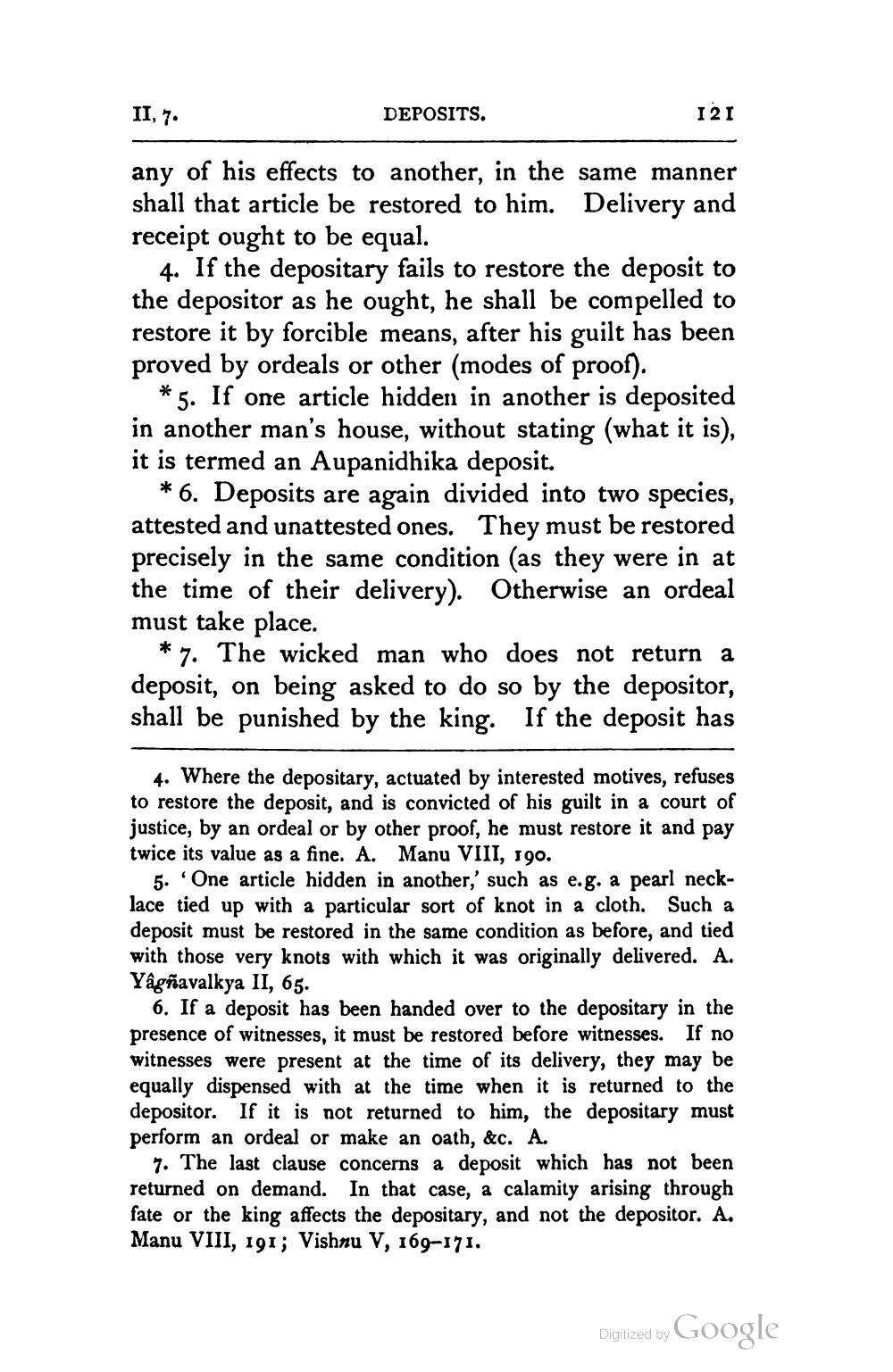________________
II, 7. DEPOSITS.
121 any of his effects to another, in the same manner shall that article be restored to him. Delivery and receipt ought to be equal.
4. If the depositary fails to restore the deposit to the depositor as he ought, he shall be compelled to restore it by forcible means, after his guilt has been proved by ordeals or other (modes of proof).
* 5. If one article hidden in another is deposited in another man's house, without stating (what it is), it is termed an Aupanidhika deposit.
*6. Deposits are again divided into two species, attested and unattested ones. They must be restored precisely in the same condition (as they were in at the time of their delivery). Otherwise an ordeal must take place.
*7. The wicked man who does not return a deposit, on being asked to do so by the depositor, shall be punished by the king. If the deposit has
4. Where the depositary, actuated by interested motives, refuses to restore the deposit, and is convicted of his guilt in a court of justice, by an ordeal or by other proof, he must restore it and pay twice its value as a fine. A. Manu VIII, 190.
5. 'One article hidden in another,' such as e.g. a pearl necklace tied up with a particular sort of knot in a cloth. Such a deposit must be restored in the same condition as before, and tied with those very knots with which it was originally delivered. A. Yâgñavalkya II, 65.
6. If a deposit has been handed over to the depositary in the presence of witnesses, it must be restored before witnesses. If no witnesses were present at the time of its delivery, they may be equally dispensed with at the time when it is returned to the depositor. If it is not returned to him, the depositary must perform an ordeal or make an oath, &c. A.
7. The last clause concerns a deposit which has not been returned on demand. In that case, a calamity arising through fate or the king affects the depositary, and not the depositor. A. Manu VIII, 191; Vishnu V, 169-171.
Digitized by Google




